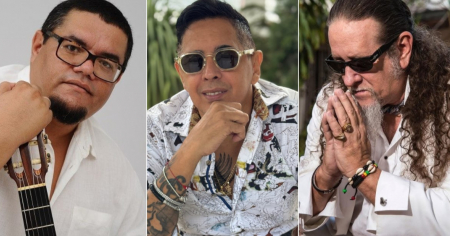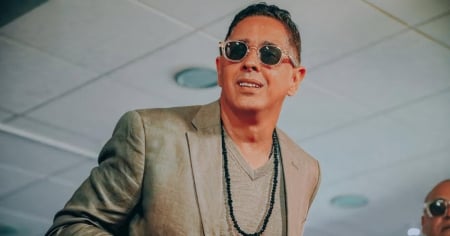The Cuban exile community in Miami bid farewell this Saturday to former Republican congressman Lincoln Díaz-Balart, a prominent figure in the fight for democracy in Cuba and a champion of immigrant rights.
The commemorative mass was held at Corpus Christi Church, located in the Allapattah neighborhood, and was open to the public.
Díaz-Balart, born in Havana in 1954, died last Monday at his home in Key Biscayne at the age of 70, after a battle with cancer.
During his service in Congress from 1993 to 2011, he was distinguished by his strong defense of democracy in Cuba and his support for immigrants.
The ceremony was attended by family, friends, politicians, and leaders of the Cuban exile community, who emphasized their commitment to the Cuban cause and their legacy within the community. The religious service was broadcast live for those who could not attend.
On Friday, the flags were flown at half-mast in Florida, following an official statement issued by Governor Ron DeSantis.
The passing of Díaz-Balart represents a significant loss for the Cuban-American community and for all those who value freedom and democracy. His legacy will endure in the memory of those who continue the fight for a free Cuba.
Frequently Asked Questions about the Legacy of Lincoln Díaz-Balart and His Impact on the Cuban-American Community
Who was Lincoln Díaz-Balart and why is he important to the Cuban-American community?
Lincoln Díaz-Balart was a prominent former congressman and Cuban-American attorney, known for his strong advocacy for democracy in Cuba and immigrant rights. During his service in the United States Congress from 1993 to 2011, he played a crucial role in shaping significant policies such as the Cuban Adjustment Act and the Cuba Democracy Act. His legacy is remembered for his tireless fight against the Cuban regime and his support for the exiled community.
How was Lincoln Díaz-Balart dismissed by the Cuban-American community?
The former congressman Lincoln Díaz-Balart was honored with a memorial mass at Corpus Christi Church in Miami, attended by family, friends, politicians, and leaders from the Cuban exile community. The mass was broadcast live for those who could not attend in person. His passing was marked by flags flying at half-mast in Florida, in tribute to his legacy and commitment to the struggle for Cuba's freedom.
What was the impact of Lincoln Díaz-Balart's policies on the immigrant community in the United States?
Lincoln Díaz-Balart was essential in creating policies that benefited thousands of immigrants, including Nicaraguans and Cubans, as well as elderly Haitian immigrants. His legislative work included the Cuban Adjustment Act and the National Security Act, as well as his involvement in the DREAM Act to facilitate access to higher education for immigrant students. His legacy continues to impact the immigrant community today.
What role did Lincoln Díaz-Balart play in the fight against the Cuban regime?
Lincoln Díaz-Balart was a steadfast and vocal opponent of the Cuban regime. Throughout his career, he sponsored laws to strengthen the embargo against Cuba and supported measures to pressure the Castro regime. He actively participated in the La Rosa Blanca Institute, promoting the democratization of Cuba and honoring the memory of the martyrs who fought against the regime. His legacy continues to inspire those who strive for a free Cuba.
Filed under:





